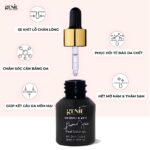To optimize social media marketing efforts, it is crucial to measure and analyze the performance of your campaigns. This article presents the importance of measurement and analytics in social media marketing and offers effective methods to implement these practices.

- Establish Clear Objectives:
Before diving into social media marketing, establish clear objectives aligned with your overall marketing goals. Determine what you want to achieve through social media, whether it’s increasing brand awareness, driving website traffic, generating leads, or boosting sales. Clear objectives provide a basis for measuring success and determining relevant metrics. - Define Key Performance Indicators (KPIs):
Identify the key performance indicators (KPIs) that align with your objectives. KPIs can include metrics such as engagement rates, reach, impressions, clicks, conversions, follower growth, or customer acquisition. Select the metrics that are most relevant to your goals and use them to measure the success of your social media efforts. - Utilize Social Media Analytics Tools:
Leverage social media analytics tools provided by platforms such as Facebook Insights, Twitter Analytics, Instagram Insights, and LinkedIn Analytics. These tools offer valuable data and insights into your social media performance. Monitor metrics, track audience demographics, and analyze engagement patterns to assess the effectiveness of your campaigns. - Track URL Parameters:
To measure the impact of social media on website traffic and conversions, use tracking URLs or UTM parameters. These unique URLs contain additional information that allows you to identify the source of the traffic. By utilizing tools like Google Analytics, you can track the performance of specific social media campaigns, posts, or ads and attribute website conversions to your social media efforts. - Set Up Conversion Tracking:
If your social media campaigns aim to drive specific actions, such as form submissions or purchases, set up conversion tracking. Most social media platforms provide conversion tracking features that allow you to measure the number of conversions and attribute them to your social media campaigns. This data helps assess the ROI of your social media marketing efforts. - A/B Testing:
Experiment with different variables in your social media campaigns through A/B testing. Test different messaging, visuals, ad formats, or targeting parameters to identify the most effective strategies. By comparing the performance of different versions, you can optimize your campaigns and allocate resources to the tactics that yield the best results. - Regular Reporting and Analysis:
Create a reporting schedule to regularly analyze and report on your social media performance. Assess the progress towards your objectives, evaluate KPIs, and identify trends or patterns. This analysis helps uncover insights, understand audience preferences, and make informed decisions to improve future campaigns. - Continuous Optimization:
Use the data and insights gained from measurement and analysis to optimize your social media marketing strategies continually. Identify what works and what doesn’t, refine your targeting, messaging, and content strategies, and adapt to changes in audience behavior or platform algorithms. Continuous optimization ensures that your social media efforts remain effective and aligned with your objectives.
Measurement and analytics are vital components of successful social media marketing. By establishing clear objectives, defining relevant KPIs, utilizing social media analytics tools, tracking URL parameters, setting up conversion tracking, conducting A/B testing, regularly reporting, and continuously optimizing your campaigns, you can gain valuable insights, improve your social media performance, and drive meaningful results in your marketing efforts.











































